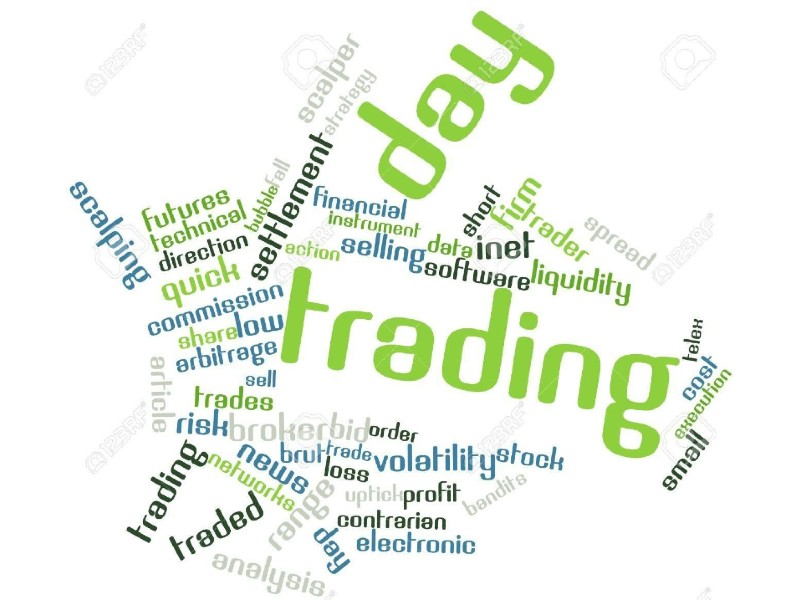There are literally thousands (millions?) of different combinations of strategies, instruments, markets, time frames, and styles of Day Trading. Below is just a shortlist of the terms you will run into when researching Day Trading.
Stocks
A stock is a security that represents ownership. If you buy a stock, you now own a piece of the company that security represents. Stocks are typically sold on a stock exchange that facilitates the transaction between a buyer and a seller. For this, the exchange receives a fee.
Futures
A futures contract is an agreement that you, the owner of the contract, will purchase an asset or commodity, at a predetermined price at a predetermined time in the future. There is no ownership involved in a company, but the holder of the contract is required to purchase the asset or commodity upon contract expiration. Futures traders will speculate on whether the fixed price will be higher or lower than the fixed price of the contract when the contract expires on the expiration date.
Options
Like futures, options will have a specific expiration date. Unlike futures, the holder of the contract is not required to purchase the asset but has the “option” to purchase at a set price. This price is known as the “strike” price.
- “Call” options allow the holder to buy the asset at a stated price within a specific timeframe.
- “Put” options allow the holder to sell the asset at a stated price within a specific timeframe.
Forex (aka FX)
This is the market where currencies are traded and is the largest and most liquid market in the financial world. There are three types of Forex markets.
Spot Forex is what most people think of when trading Forex currencies. Futures and Forward Forex markets tend to be more popular with companies that need to hedge their foreign exchange risks out to a specific date in the future. Traders will trade the exchange rate between a pair of currencies known as currency pairs.
Broker
Trading exchanges do not execute orders from the public. They will only execute orders for members of their exchanges. Therefore, traders need an intermediary between themselves and the exchanges called Brokers. A trader’s trading funds are held by the broker. Brokers receive payment for their services in several ways including fees for each trade execution.
A Long Position
The trader has executed a buy order and is expecting the price to increase before selling the order for a profit.
A Short Position
The trader has executed a sell order and is expecting the price to decrease before buying the position back at a lower price.
Leverage and Margin
Margin allows traders to amplify their purchasing power to leverage into larger positions than their cash positions would otherwise allow. By borrowing money from your broker to trade in larger sizes, traders can both amplify returns and potential losses.
Limit Order
An order to buy or sell at a fixed price.
Market Order
An order to buy or sell a security at the present market price. As long as there is a market for this security, the order will be filled. This type of order takes precedence over all other orders.
Slippage
The difference between the expected market order purchase price and the price actually received once the order has been filled by the exchange. This can happen in particularly volatile markets.
Scalp
To trade for small gains. Scalping normally involves establishing and liquidating a position quickly, usually within the same day, an hour, or even just a few minutes or seconds.
Ask
The lowest price that a trader is prepared to sell a given asset (the same as offer).
Bid
The price that the market participants are willing to pay for a security.
Drawdown
Reduction in equity of a trading account from a single trade or a series of trades.
Institutional Trader
An entity with large amounts of its own assets, or assets held in trust by it for others, to invest. Examples are hedge funds, life insurance companies, and banks. Institutional traders account for a large portion of market volume and exert an increasing amount of influence on the markets.

